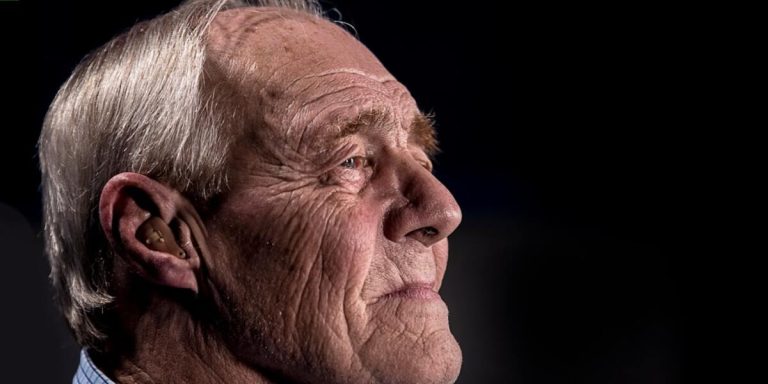What Nutrient Deficiency Causes Hair Loss? An In-depth Exploration
Hair loss is a prevalent issue affecting thousands of people worldwide, and it’s often rather challenging to pinpoint the exact cause. Many individuals frequently ask, “what nutrient deficiency causes hair loss?” This question has gained prominence as growing evidence suggests that dietary habits play a crucial role in maintaining healthy locks.
In this article, we delve into an in-depth exploration of how certain nutritional deficiencies can lead to hair fall. The connection between our diet and hair health isn’t always apparent; hence understanding these intricacies can pave the way towards effective prevention strategies for those grappling with thinning tresses or balding patterns.
Did you know?
Iron deficiency, particularly in pre-menopausal women, can often lead to hair loss. This condition is usually overlooked as it’s asymptomatic until anemia begins to set in.
Understanding the Link Between Nutrient Deficiency and Hair Loss
Discovering the link between nutrient deficiency and hair loss can provide critical insights into tackling premature balding effectively. When your body lacks essential nutrients, it prioritizes vital functions by diverting limited resources. Consequently, many people with hair loss or thinning have bodies that favor other processes over healthy follicular function, resulting in weakened roots or stunted hair growth.
Our diet significantly influences our overall health, including hair well-being, by providing essential nutrients like iron, proteins, and vitamins A, B, C, D, and E. These nutrients promote robust health and ensure a strong root system for scalp enrichment. For instance:
- Biotin (Vitamin B7) plays a crucial role in producing keratin—a protein that strengthens hair strands.
- A deficiency in biotin can result in brittle and weak hair prone to breakage.
Therefore understanding what specific nutritional deficits your body might be experiencing could pave way towards efficient solutions capable at tackling causes inducing instances related with unwanted desquamation associated amongst various individuals suffering from said condition.
The Impact of Iron Deficiency on Hair Health
Iron deficiency is one of the significant nutrient deficiencies that can lead to hair loss. When our bodies lack sufficient iron, it influences various bodily functions, including those responsible for maintaining healthy hair.
Symptoms like fatigue and paleness signal the onset of anemia triggered by inadequate levels of iron in your system. But how does this relate to our tresses? To better understand what nutrient deficiency causes hair loss, specifically examining iron’s role is crucial.
When there aren’t enough resources available (like when experiencing anemia), your body prioritizes other essential tasks over non-essential one such as generating new strands or preserving existing ones—resulting in noticeable thinning or perhaps more drastic outcomes depending on severity level .
Deficiency doesn’t occur overnight though; it’s born from prolonged periods where diet lacks proper nutritional intake , particularly meat-based products rich with natural mineral content (iron).
However, don’t get misled into believing only carnivorous cuisine provides adequate amounts – plant foods also contain considerable quantities if consumed correctly!
So next time you’re wondering “what nutrient deficiency causes hair loss?”, remember – Iron plays a pivotal part! Enhancing dietary habits addressing gaps while consulting professionals timely would be wise decisions towards keeping luscious locks intact even during challenging health circumstances.
Essential Vitamins Lacking in Those with Hair Thinning
Scientifically proven by various studies undergone in recent years, there’s a direct correlation between certain nutrient deficiencies and hair loss patterns. The first such essential vitamin we will discuss is Vitamin D.
Vitamin D plays an imperative role in stimulating new and old hair follicles. When your body lacks sufficient levels of this crucial vitamin, it may lead to alopecia which is a fancy term for spot baldness..
Then comes B-vitamins that include biotin amongst others vital elements known as best friends to luscious healthy tresses.. Deficiency of these vitamins could disturb the health cycle of your mane leading potentially towards uninvited thinning or worse—hair fall.
Iron also deserves our attention here—it keeps several bodily functions upright including growth stimulation—a significant aspect regarding hairs indeed! Lack thereof can cause desolate lands on one’s head instead thriving lush nature-like scenery!
Nutritional Imbalances and Their Role in Hair Fall
In combating hair loss, the role of a balanced diet cannot be overemphasized. Strong and healthy hair is a direct result of the body’s overall wellbeing. Nutritional imbalances are increasingly acknowledged as significant contributors to hair fall, despite being often overlooked in favor of topical treatments and genetics.
The relationship between nutrient deficiency and hair loss essentially boils down to this: our bodies prioritize essential functions using available nutrients before they reach less vital areas like the scalp. When you lack certain vitamins or minerals, your system allocates these scarce resources where they’re most needed – typically major organs rather than growing strands on top of your head.
Iron deficiency has been identified as one leading nutritional culprit behind unexpected shedding since it plays an important part in producing hemoglobin that carries oxygen for cellular growth including those involved in growing new hairs on our scalps! Similarly vitamin D (critical for follicle cycling), B group Vitamins especially B7 (Biotin) which promote cell growth also play crucial roles.
How Inadequate Protein Intake Affects Your Locks
Protein, a macronutrient known for its significant role in the body’s repair and growth processes, has an equally crucial part when it comes to hair health. When we take into account what nutrient deficiency causes hair loss most frequently, inadequate protein intake often top ranks.
The structure of our hair is primarily made up of a tough type of protein called keratin. If there exists an imbalance due to insufficient quantities being consumed through diet or absorbed during digestion, it can contribute substantially towards weaker strands and accelerated shedding rates – features synonymous with early onset alopecia or premature balding scenarios.
1- The biological mechanism behind strong locks: Hair follicles produce new cells when provided sufficient proteins from diets rich in lean meats, fish and eggs among other sources. As these older cells push outwards upwards they harden over time forming the thick luscious mane we adore so much!
2- Impact on the cycle: There are three key stages involved under normal conditions – Anagen (growth), Catagen (transition) & Telogen(rest). A nutritional shortfall however can disrupt this smooth transition causing excessive rest periods where few hairs grow back resulting in thinning patches spreading across your scalp.
The Consequences of Low Vitamin D Levels for Scalp Wellness
Vitamin D, often referred to as the “sunshine vitamin”, holds great significance for our overall health, including that of our hair. It is not uncommon to wonder what nutrient deficiency causes hair loss? The answer quite often lies in low levels of Vitamin D.
Hair follicles are very responsive to this unique nutrient. They require it for growth and when deficient; your scalp may struggle with maintaining healthy hair production cycles. Low Vitamin D implies an undernourished scalp which can directly contribute towards premature balding or thinning lines – a nightmarish reality many people experience today.
An interesting fact about alopecia is that unlike other forms of common hereditary patterned baldness diseases such as male-pattern or female-pattern baldness where only head-hair density decreases noticeably yet uniformly over time; Alopecia patients stand at risk from complete instant localized loss without warning signs! This unpredictable nature makes dealing even more psychologically challenging than usual gradual changes associated typically.
Moreover, research has indicated that having adequate amounts of Vitamin-D may help create new pores within skin where fresh hairs could potentially grow back again thus helping combat excessive fallout problems significantly effectively given right conditions met upon regular supplementation paired alongside balanced diet incorporating rich sources adequately throughout day consistently taken care properly managed well indeed!
Dietary Changes to Combat Nutrient-Related Alopecia
As we delve into the topic of nutrient deficiency and its links to hair loss, it’s imperative to know that your locks are a reflection of your overall health. A well-nourished body is more likely to produce healthy, vibrant tresses while deficiencies in key nutrients can lead you down the path towards Alopecia – a term for hair loss in general.
Firstly, let’s address protein intake. Hair primarily consists of keratin- a protein itself. Therefore when one’s body doesn’t consume adequate amounts of proteins, this might affect hair growth leading eventually toward shedding or thinning conditions over time.
Incorporating lean meats like chicken breast or turkey as part of regular meals could help provide much-needed proteins which directly impact maintaining healthier manes.
Identifying Foods Rich in Hair Growth Supporting Nutrients
Let’s delve into some food choices rich in nutrients promoting healthy hair growth.
Start with proteins; they are fundamental building blocks for your body, including your hair. Foods like lean meats, eggs, and dairy products provide ample protein sources. If you’re vegan or vegetarian, quinoa and lentils are great alternatives.
Next up – Iron-rich foods such as spinach, beans or red meat play a significant role too! Iron aids the red blood cells carry oxygen to all parts of our body – yes even those follicles on our scalp need air to survive!
Vitamin E also plays its part by protecting against environmental damage—the kind that weakens our strands over time- leading eventually perhaps towards baldness!. Include almonds & sunflower seeds as these come jam-packed with Vitamin E goodness!
Strategies for Reversing Hair Loss through Diet Modifications
An abrupt thinning or loss of hair can often be linked back to nutrient deficiency. In fact, studies have found a strong correlation between certain deficiencies and alopecia (hair loss). Therefore, understanding what nutrient deficiency causes hair loss becomes crucial in our bid to reverse it.
Secondly on the list comes Vitamin D that helps stimulate the follicles—small organs producing each strand of our hairs – thus contributing towards healthier overall growth. Not enough sun exposure? Include fatty fish like salmon apart from egg yolks and fortified cereals amongst other foods in meals as they’re fine vitamin D resources.
Thirdly Zinc aids tissue growth while maintaining oil-secreting glands attached with follicles–deficiency though rare leads usually to dryness or brittleness resulting ultimately in strands falling out prematurely over time if not addressed early on . Oysters contain most zinc per serving; however legumes nuts along beef are likewise good sources!
Conclusion
In wrapping up, we can see that nutrient deficiency plays a significant role in hair health. From vitamins A and D to vital minerals like iron and zinc- knowing what nutrient deficiency causes hair loss is the first step towards recognizing our body’s cry for help.
Now you are equipped with newfound knowledge about how these deficiencies may be contributing to your vanishing tresses. Yet, remember this isn’t an exhaustive list! Make sure you stick around on our website to delve deeper into other potential ‘Hair Loss Causes.’ There’s always more wisdom waiting just around the corner.







